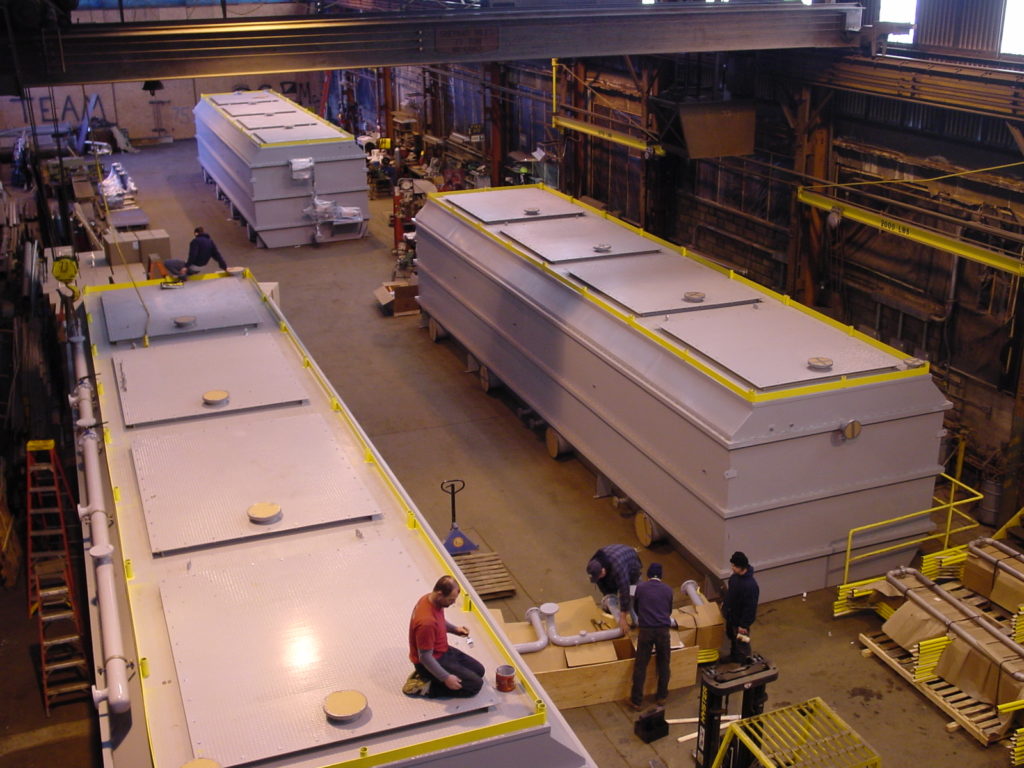Fixed Bed Bioreactors (FBBR)
Fixed-bed bioreactors, or FBBRs, are advanced biological wastewater treatment technologies used for efficiently treating wastewaters with high to extremely high organic contamination levels. Of all biological treatment systems, FBBRs can hold the most contaminant-eating microbes in the smallest area, which makes them space-saving and energy-efficient technologies ideal for treating wastewaters with medium to very high BOD.
FBBR Design
FBBRs consist of multiple-chambered tanks in which the chambers are packed with porous ceramic or foam media. The media is engineered to have a high enough surface area to encourage biofilm formation while also allowing wastewater to flow through the system. Chambers can be both aerated and anoxic to achieve full denitrification.
More advanced biological processes can be facilitated with these systems, by having unique bacteria cultures populate separate tank chambers, which can be customized to treat your facility’s unique wastes.
FBBR Applications
FBBRs are often considered in situations where high BOD makes other treatment processes impractical, such as wastewaters produced in the petrochemical, food and beverage, meat processing, and more.
Advantages:
-
-
- Treats medium-to-high BOD wastewaters with low sludge waste
- Dramatically reduced footprint compared to other technologies
- Lower capital cost than other treatments
- Energy efficient
-
Disadvantages:
-
-
- Variabilities in feed composition can affect performance
- Requires certain feedwater chemistry to keep it from scaling/fouling
- Membrane replacement costs can be high
-


